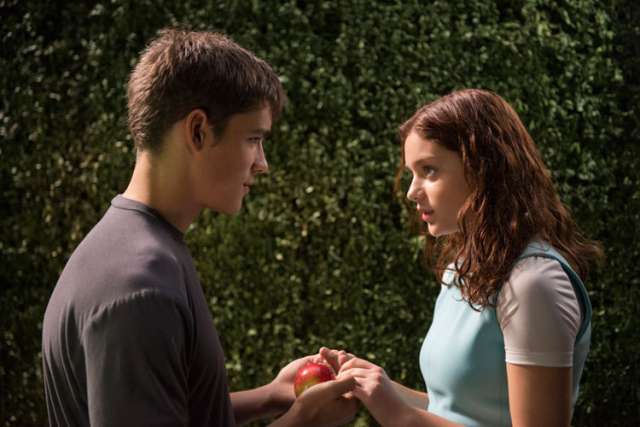The film is based on Lois Lowry’s novel of the same name that has become a staple of grade-school curriculums. Recent screenplay versions of dystopian teen fiction novels — The Hunger Games and Divergent — inspired actor and producer Jeff Bridges to do the same with The Giver. The film may fail to impress cinephiles who crave big explosions, epic battles and more complex faux-science, but what The Giver provides is advocacy for freewill and a challenge to the status quo, seemingly peaceful as it pretends to be.
In this utopia of “sameness” where people can no longer see colour, feel deep emotion or lie, we meet teenager Jonas as he and his friends are about to graduate from childhood. On graduation day, they are assigned their life-long careers. The Chief Elder (Meryl Streep) assigns Jonas, played by Brenton Thwaites, the special honour of becoming the next Receiver of Memory, the one person designated to know more about human history and life beyond this sterile society.
Mentored by the previous Receiver, who now calls himself the Giver (Bridges), Jonas’s eyes and emotions are awakened to the beauties and tragedies of life. He holds the knowledge of good and evil. Jonas experiences love, loss and violence for the first time, with the latter two threatening to push him to the edge.
In The Giver, society supports the social philosophy that diversity — whether it be race or religion or other — leads to conflict, but as Jonas becomes aware of diversity in all forms, life becomes more beautiful. In his world, everyone takes drugs to subdue their emotions, but when he abandons his daily medication, he is able to better understand the real world. But with the ability to experience the passions of life comes pain.
When Jonas realizes that population control — known as being “released to elsewhere” — equals state-sanctioned death, he decides to rebel. He feels instinctively that euthanasia of anyone deemed undesirable is wrong. Freewill and the clarity of knowing what is or isn’t good makes Jonas’s “adulthood” purposeful.
Yet, this family friendly film leaves viewers with this haunting last thought spoken by the Chief Elder: “When people have the freedom to choose, they choose wrong every single time.”


